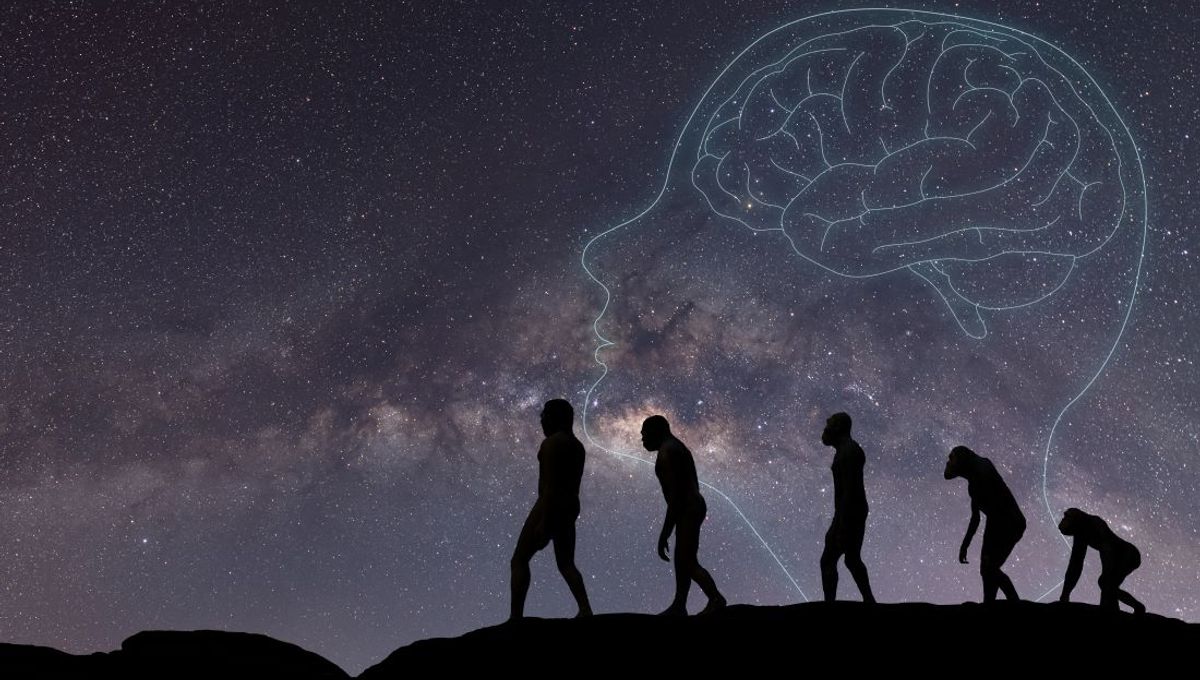
A chance rearrangement of the human genome over a million years ago probably kick-started the evolution of modern humans from our primate ancestors. A recent study explains why human DNA contains sections, many of which are involved in brain development, that are unique to us and are not shared with even our closest relatives, chimpanzees.
These stretches of human-specific DNA are called human accelerated regions (HARs). They were discovered almost 20 years ago by Dr Katie Pollard, now director of the Gladstone Institute of Data Science and Biotechnology, who led the new study to try to figure out where they came from.
“What we found is that many HARs are in regions of DNA where structural variants caused the genome to fold differently in humans compared to other primates,” Pollard explained in a statement. “This gave us an idea how HARs could have arisen in the first place.”
The physical structure of a section of DNA can be an important indicator of its function. The researchers analyzed 241 different mammalian genomes and found that HARs tend to arise in parts of the human genome that are structurally very different to their counterparts in other mammalian genomes. This is important, as the structure of DNA dictates how it’s able to fold in three dimensions.
“The way the genome folds up in three-dimensional space like origami is particularly important for enhancers,” said Pollard. “That’s because enhancers can impact the activity of any gene that ends up close by, which can vary depending on how DNA is folded.”
The team then used a machine-learning approach to compare human and chimpanzee DNA sequences, and concluded that almost 30 percent of HARs were in genomic regions that were folded differently in humans than in chimpanzees. A difference in folding means new genes are brought closer to the HARs, and these seemingly minor changes could have had drastic consequences.
“Imagine you’re an enhancer controlling blood hormone levels, and then the DNA folds in a new way and suddenly, you’re sitting next to a neurotransmitter gene and need to regulate chemical levels in the brain instead of in the blood. Your instructions are now out-of-date and need to be changed,” Pollard explained.
“We realized that these human-specific structural changes may have created the right environment for HARs to evolve fast in the human ancestor, after remaining almost the same over millions of years of mammal evolution,” added first author Dr Kathleen Keough.
To find out which specific genes were being affected by the HARs, the team performed experiments in human and chimpanzee stem cells. As it turned out, many of the genes they identified are known to play a role in brain development. Exactly how this contributed to the evolution of the human brain is a question the team is keen to answer next.
The findings also chime with those of another recent study from the team. They reported that many of the early changes in HARs had opposing effects: an original mutation might have “turned up” associated gene activity too much, and so a further change would have been needed down the line to tweak this.
As Pollard put it, “Something big happens like this massive change in genome folding, and our cells have to quickly fix it to avoid an evolutionary disadvantage. But the fix might kind of overdo it and need to be refined over time.”
The new study adds another important piece to this puzzle in shedding light on how HARs came to be in the first place. Pollard and the team have already started planning the next phase of this research. It’s well known that human and chimpanzee DNA differs by only a tiny percentage – in time, we will hopefully learn more about how these fractional changes set in motion the chain of events that gave us our distinctly human brains.
The study is published in Science.
[H/T: ScienceAlert]
Source Link: Chance Genetic Changes 1 Million Years Ago Could Have Kicked Off Human Brain Evolution